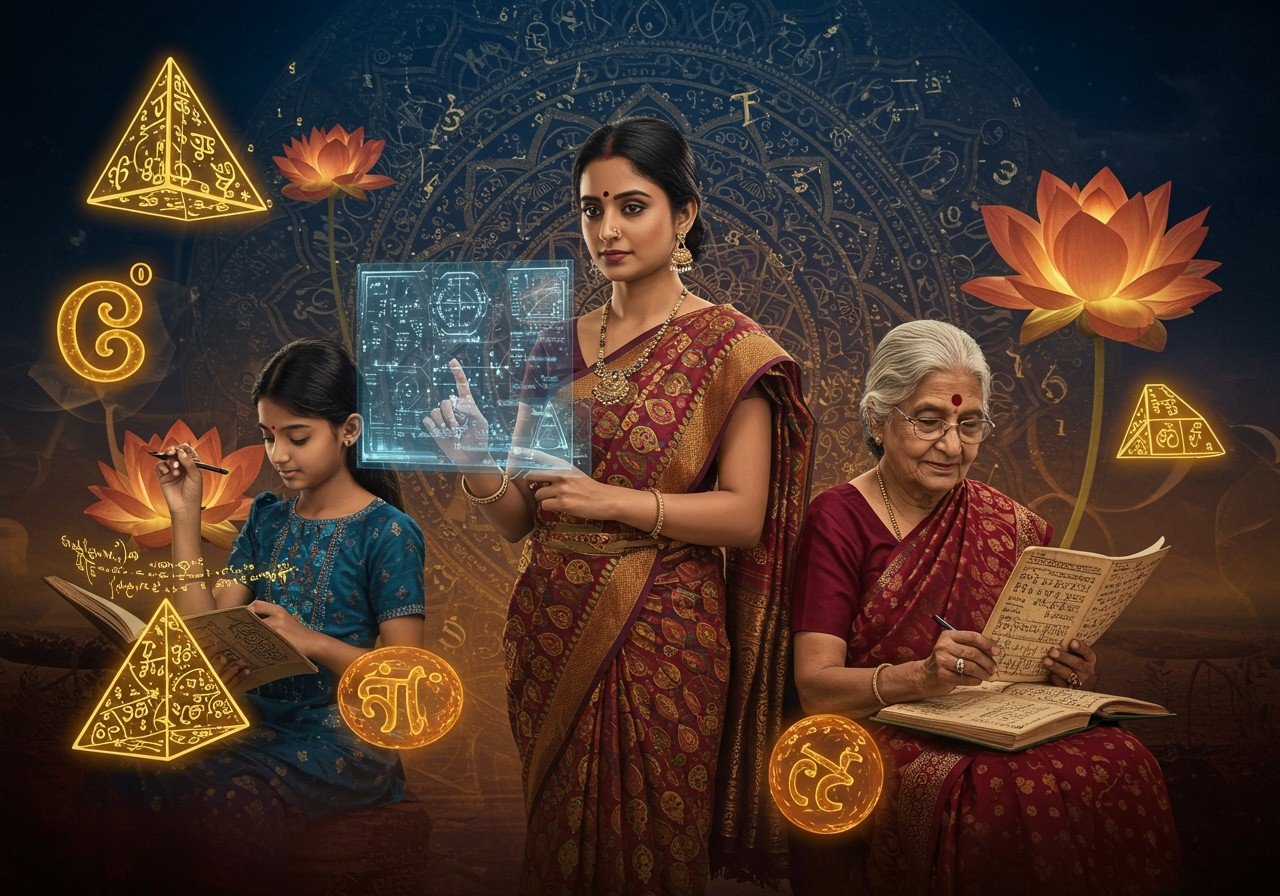
The realm of mathematics in India boasts a vibrant history, with contributions from both men and women. This article delves into the significant contributions of Indian women to mathematics, highlighting their accomplishments, the hurdles they’ve overcome, and the persistent obstacles hindering their full participation. We’ll also examine the cultural and educational influences shaping women’s involvement in mathematics within India.
Historical Trailblazers: Indian Women in Mathematics
Indian women have consistently enriched the field of mathematics, although their contributions often remain unsung. Lilavati, daughter of Bhaskara II, stands as an exemplary ancient mathematician who profoundly shaped mathematical education. R. Kalpana advanced the study of algebraic structures. Mangala Narlikar is renowned for her work in astrophysics and mathematics. Kamala Sohonie, the first Indian woman to earn a Ph.D. in science, also made notable contributions to mathematical research. These women have left an enduring legacy on mathematical education and the landscape of Indian mathematics.
Contemporary Luminaries: Leading Female Mathematicians of India
In contemporary India, a constellation of female mathematicians continues to make groundbreaking contributions. Shakuntala Devi, celebrated as the “human computer,” captivated the world with her extraordinary mental calculation prowess. Parimala Raman, a globally recognized figure, has made significant contributions to algebra, garnering numerous national and international accolades. Neena Gupta earned the Ramanujan Prize for Young Mathematicians for her work in algebraic geometry. Sujatha Ramdorai, a recipient of the Shanti Swarup Bhatnagar Award, is renowned for her contributions to number theory. These mathematicians serve as beacons of inspiration for future generations and leave an indelible mark on the global mathematical community.
Navigating the Labyrinth: Challenges Faced by Indian Women in Mathematics
Indian women pursuing careers in mathematics encounter a myriad of challenges and obstacles:
- Societal Expectations and Gender Stereotypes: Deep-rooted societal expectations and gender stereotypes often discourage women from venturing into STEM fields, perpetuating the notion that these domains are primarily masculine.
- Mentorship Gap: The scarcity of mentors and role models for aspiring female mathematicians creates a void in guidance and support, making the path to success more arduous.
- Cultural Norms and Family Responsibilities: Traditional cultural norms and family responsibilities frequently influence women’s career choices, leading many to prioritize family obligations over professional pursuits.
- Unequal Access to Education: Disparities in educational opportunities and resources available to women create an uneven playing field, limiting their access to quality education in mathematics.
- Workplace Discrimination: Workplace discrimination and the gender pay gap persist in academia and industry, creating an environment where women are often undervalued and underpaid.
Shaping Participation: Cultural and Educational Factors
Several cultural and educational factors play a pivotal role in influencing women’s participation in mathematics in India:
- Family Support: Family support and encouragement are paramount in enabling women to pursue mathematical studies, providing them with the emotional and practical support necessary to thrive.
- Educational Policies: Educational policies and initiatives aimed at promoting STEM education for girls are crucial in creating a more inclusive and equitable learning environment.
- Early Exposure to Mathematics: Early exposure to mathematics through school curricula and extracurricular activities fosters a love for the subject and encourages girls to explore its possibilities.
- Community Programs: Community programs and organizations dedicated to supporting women in mathematics provide valuable resources and networking opportunities.
- Societal Attitudes: Societal attitudes towards women in STEM fields significantly impact their career choices, highlighting the need for a shift in mindset to encourage greater female participation.
Empowering the Future: Supporting Indian Women in Mathematics
Poojn.in recognizes the vital role of women in STEM and celebrates their contributions. Explore our collection of divine idols and spiritual items, including those dedicated to Goddess Saraswati, the embodiment of knowledge and wisdom, to create a sacred space for learning and inspiration. Visit Sakha by Poojn, Paita Ashim Banerjee Paita, and Maa Lakshmi Murti for culturally significant items that honor the divine feminine.
Charting a Course Forward: Empowering Women in Mathematics
Indian women have made remarkable strides in mathematics, yet challenges remain. To further empower women in this field, we must address these issues collectively. Encouraging family support, establishing robust mentorship programs, and promoting educational initiatives are crucial steps. By fostering an inclusive environment and challenging societal norms, we can inspire future generations of Indian women to confidently contribute to the world of mathematics. Together, we can forge a brighter, more equitable future for women in mathematics.
Learn more about Indian culture and traditions by exploring our other blog posts, such as Goddess Lakshmi and Devi Saraswati.


